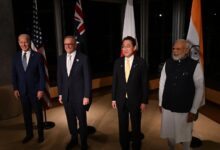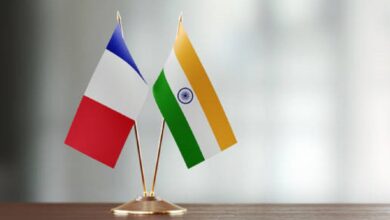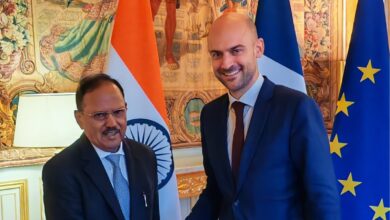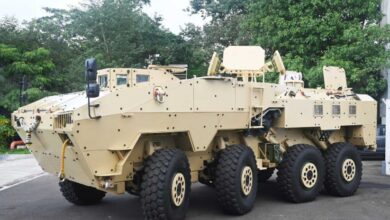NSA Jake Sullivan’s Inspiring Words To HT During Prime Minister Modi’s US Visit

- Sullivan also talked about how India fit into the US's plan for national security and said that it was in the US's best interest to strengthen defense ties.
- Sullivan also talked about his recent meetings in Delhi, where he praised Modi's positive focus on India-US ties, especially the tech relationship.
Jake Sullivan, President Joe Biden’s national security adviser (NSA), has said that Prime Minister Narendra Modi’s upcoming State visit to the US will be marked by real progress in defense, high-tech, economic cooperation, and closer ties between the two countries’ people. Both countries will also try to come to a common understanding of what China is doing and, “as best as possible,” try to coordinate and align their actions around it. However, Sullivan said that the relationship between the two countries is neither a “marriage of convenience” nor a “geopolitical bargain.” Instead, it is based on goodwill between the people, businesses, universities, and governments on both sides.
In an exclusive interview with HT, Sullivan also said that the Initiative on Critical and Emerging Technologies (iCET) is “foundational, fundamental, and critical” because both India and the US believe that harnessing emerging technologies is important for the future of their societies, economies, and security sectors.
Sullivan said that cooperation in these areas could go “as high as the sky,” and he asked people to judge Delhi and Washington DC based on how well they “live up to the promise of iCET in real research partnerships, real supply chain shifts, and real cooperation to make the next generation of technologies for 5G and 6G, and to use artificial intelligence for good.”
In a recent speech, the US NSA talked about a new vision of geoeconomics. He said that India fits into this vision in three ways: by diversifying supply chains, by working together on new technologies, and by helping to reform multilateral development banks (MDBs) and deal with debt crises that have hit many countries. As G20 president, Sullivan said, in reference to India’s leadership on MDBs and debt, “We want to help make India’s G20 presidency a landmark presidency on both of these problems. So, when I think about our foreign economic strategy, I think about the economic partnership between the US and India.
Sullivan is one of Biden’s closest aides. For the past two years, he has been in charge of how the US government deals with Ukraine, the Indo-Pacific, geoeconomics, and technology. Along with India’s NSA, Ajit Doval, he is also seen as the key person who has given the US-India relationship a boost by running iCET. Last week, Sullivan went to India, where he met with Modi, Doval, and the minister of foreign affairs, S. Jaishankar, to make sure that the state visit would go as planned. In the interview, Sullivan talked about how the US is committed to improving India’s ability to make things and to working with India on defense co-production.
When asked how much shared worries about China drive the US-India relationship, Sullivan said, “Both President Biden and Prime Minister Modi see the US-India relationship more through the lens of the opportunities it offers than through the lens of the threats and challenges it needs to worry about or fight off.”
The positive agenda, which includes building a shared technology ecosystem based on trust, building diversified, resilient supply chains, and the US and India working together to help the world solve big problems like climate change, food security, and poverty, is much more motivating than the worries or threats we see. He also said that the “ballast” in the relationship came from the fact that people in both countries were “fundamentally optimistic” about the other as a partner. “So this isn’t a geopolitical deal or a marriage of convenience against a common threat,” he said.
At the same time, he said that China will be talked about during the State visit. “What we’ve tried to do is figure out how each of our countries feels about the actions and activities of the PRC (People’s Republic of China), and then try to coordinate and match as much as possible how we deal with those worries. But, as I said before, I don’t think that’s the most important or most important thing, even if that’s what people like to write about.”
Sullivan also talked about how India fit into the US’s plan for national security and said that it was in the US’s best interest to strengthen defense ties. “And that means helping with co-production of important tools for defense. There will also be some statements about this during the state visit. Second, we think it’s important to have a shared understanding of the current situation in the Indian Ocean and the wider Indo-Pacific region.
This means being aware of what’s going on in the maritime area, sharing intelligence, doing more joint exercises, and being able to work in ways that help our militaries understand each other better. When you put all of these things together, we think that the state visit will lead to a stronger, more effective, and more diverse defense relationship than what we had before the Biden administration.
Sullivan also talked about his recent meetings in Delhi, where he praised Modi’s positive focus on India-US ties, especially the tech relationship.






Facebook Comments